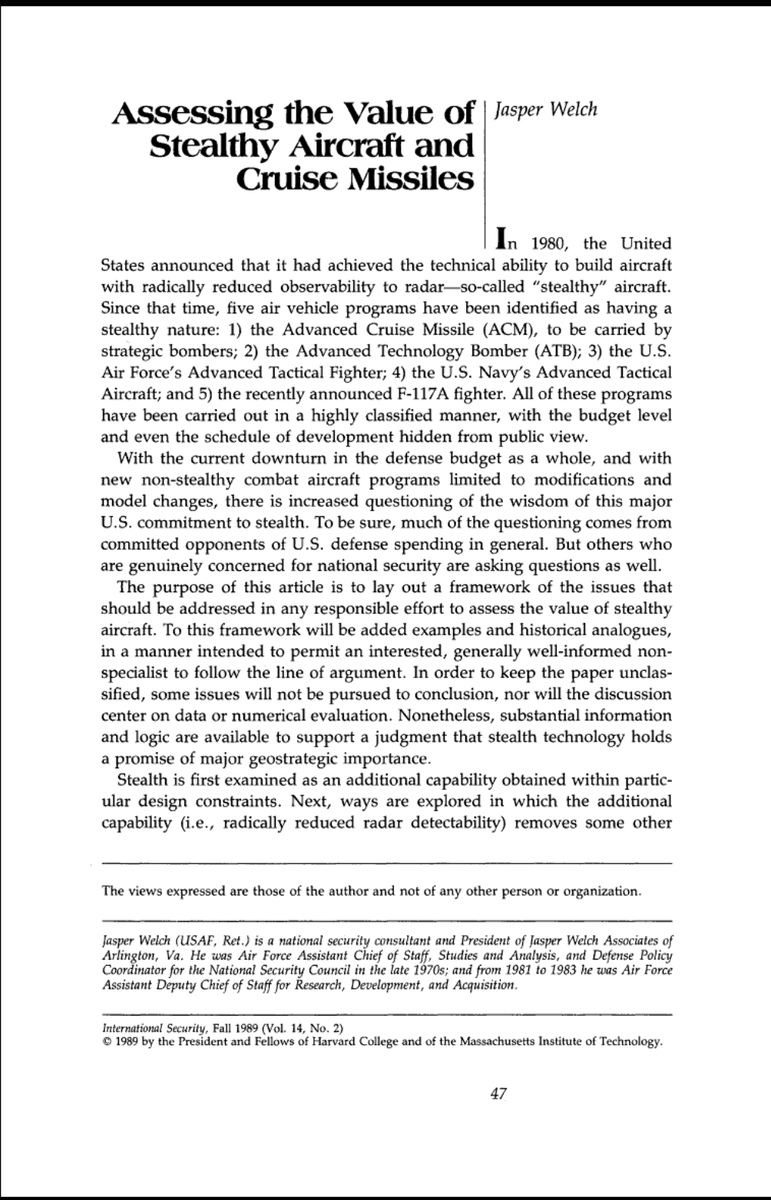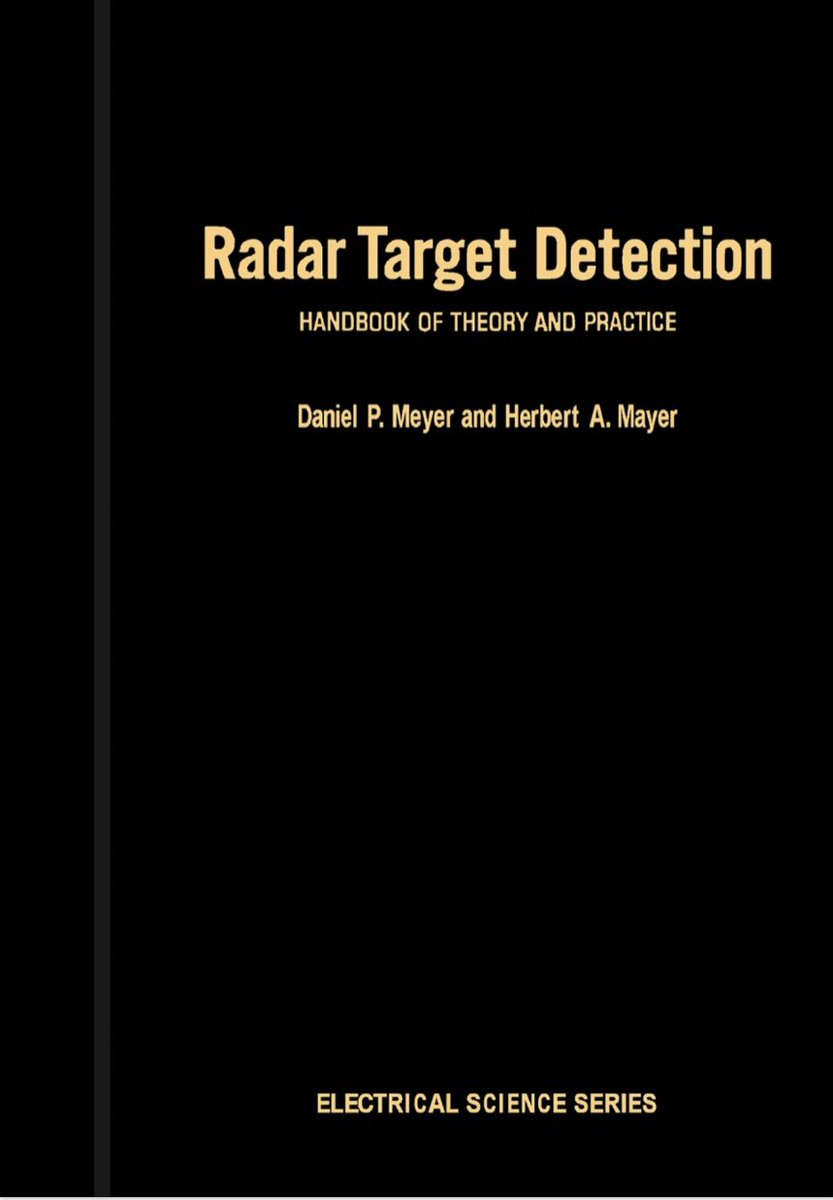
Given the attention to the B21, here I have listed some articles and books that I found useful when I wanted to understand #stealth technology (or "low observable", LO).
First and foremost, to understand stealth you need to have at least some general understanding of radar (and more generally, sensors). I wrote a thread some time ago with some references
https://twitter.com/Mauro_Gilli/status/1582084494827220992
A great place to start for stealth is this book by Richardson (they have different titles, but it's literally the same book, one just came out after the other) which provides a historical overview, and accessible explanations devoid of technical discussions. 



Bill Sweetman wrote or co-wrote several books in the 1980s and 1990s on stealth aircraft. They are generally short and accessible, and add some technical details explained in very simple way. 



Similarly accessible and with an eye to operational context is this report by the Mitchell Institute, which puts stealth in context. 

This report gets a bit more technical, but it's again very short, and is overall accessible. Written by a physicist who worked on stealth technology and taught about it. 

This biography of Ben Rich, the "father of Stealth" at Skunk Work, is also very interesting, in that it provides many anecdotes about the challenges of developing the stealth aircraft. 

This recent book, by historian Westwick, provides the economic, social and strategic context behind the development of stealth technology. 

The chapter by Kaminsky is also very interesting, and focuses more on the strategic contexts behind the development of stealth. 

These two articles, respectively by Welch and Lepingwell, are interesting for many reasons, including the fact that they provide an idea of the public debate at the time the F-117 had been disclosed and the B-2 was about to be unveiled. 



On the F-117 being disclosed, you might want to go and check this issue of Aviation Week and Space Technology. 

Moving to more technical writings, this article in IEEE Explore provides a historical overview of stealth, with some technical details (ieeexplore.ieee.org/document/259548). 

Aviation Week, a couple of years ago, had a series of 7 articles on Sstealth, if you do not have a physics or electronic engineering background, some parts might be a big demanding, but overall they are explained in a very simple way. here are 4 of 7
aviationweek.com/defense-space/…
aviationweek.com/defense-space/…
This article by a Northrop Grumman engineer provides an introduction to assessing how stealth enhances survivability. 

This volume by former Lockheed engineer is a must and treats both what stealth is and its implications in a much deeper and broader way than the other works listed. It gets quite technical, but it covers most of what you will need to know. 

To understand the principles behind reductions in observability to radar, many books on radar engineering and electromagnetic scattering will have some useful discussions. If you have already such an understanding, these two books provide a deeper (more technical) dive. 



These two articles discuss how evolving air defense technology erodes the advantage of stealth, which put the development of the B-21 in perspective. 



• • •
Missing some Tweet in this thread? You can try to
force a refresh




